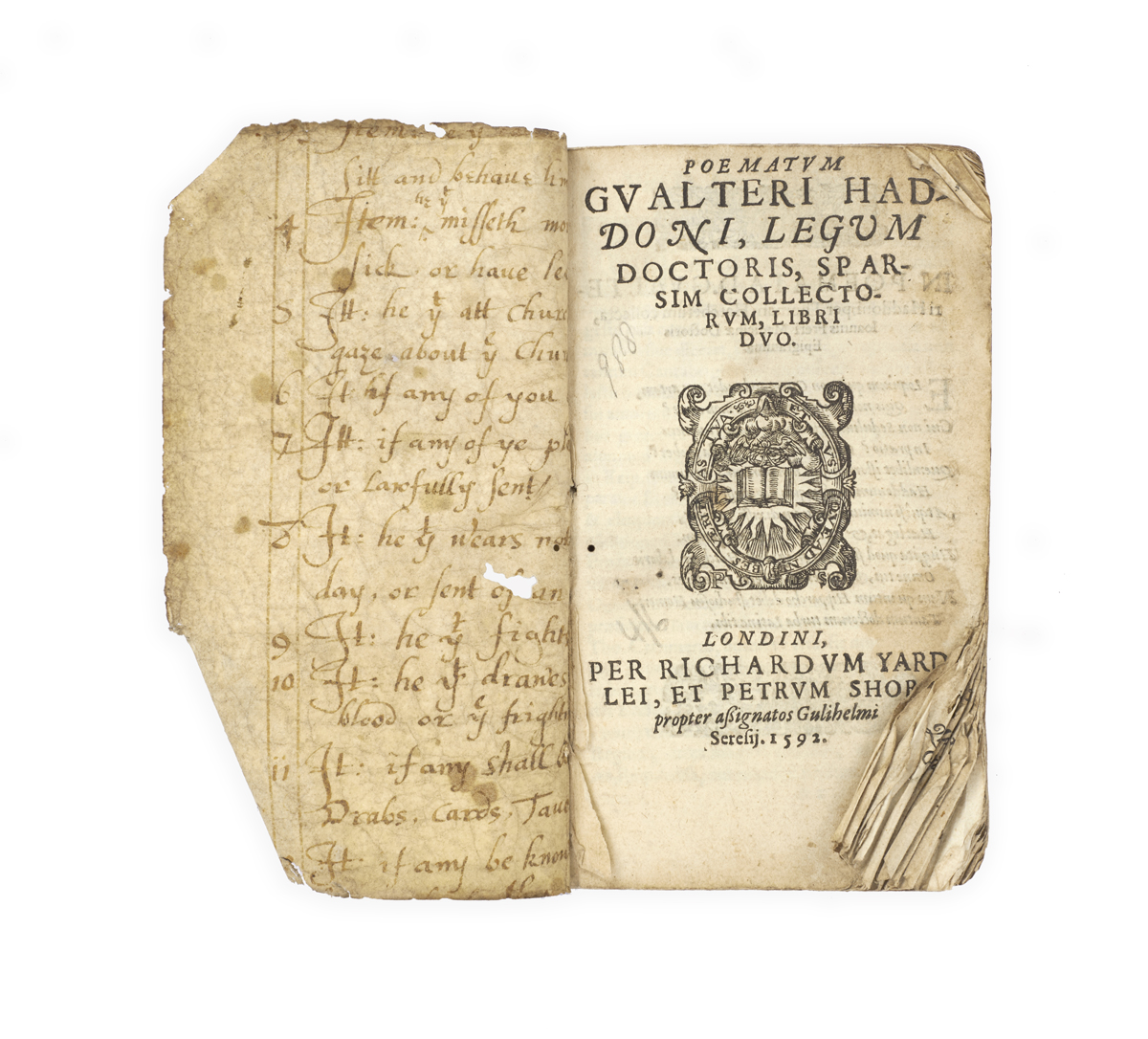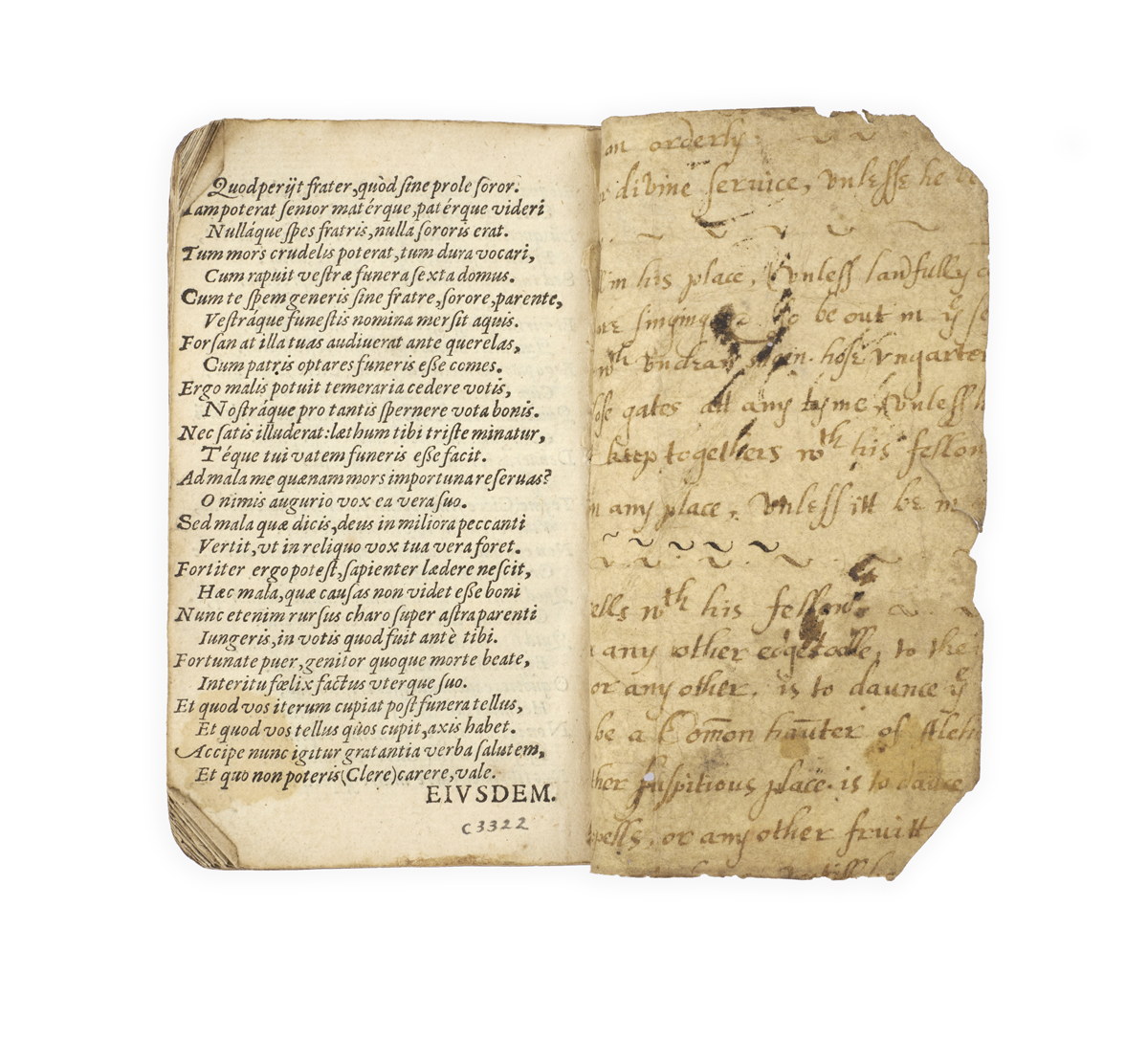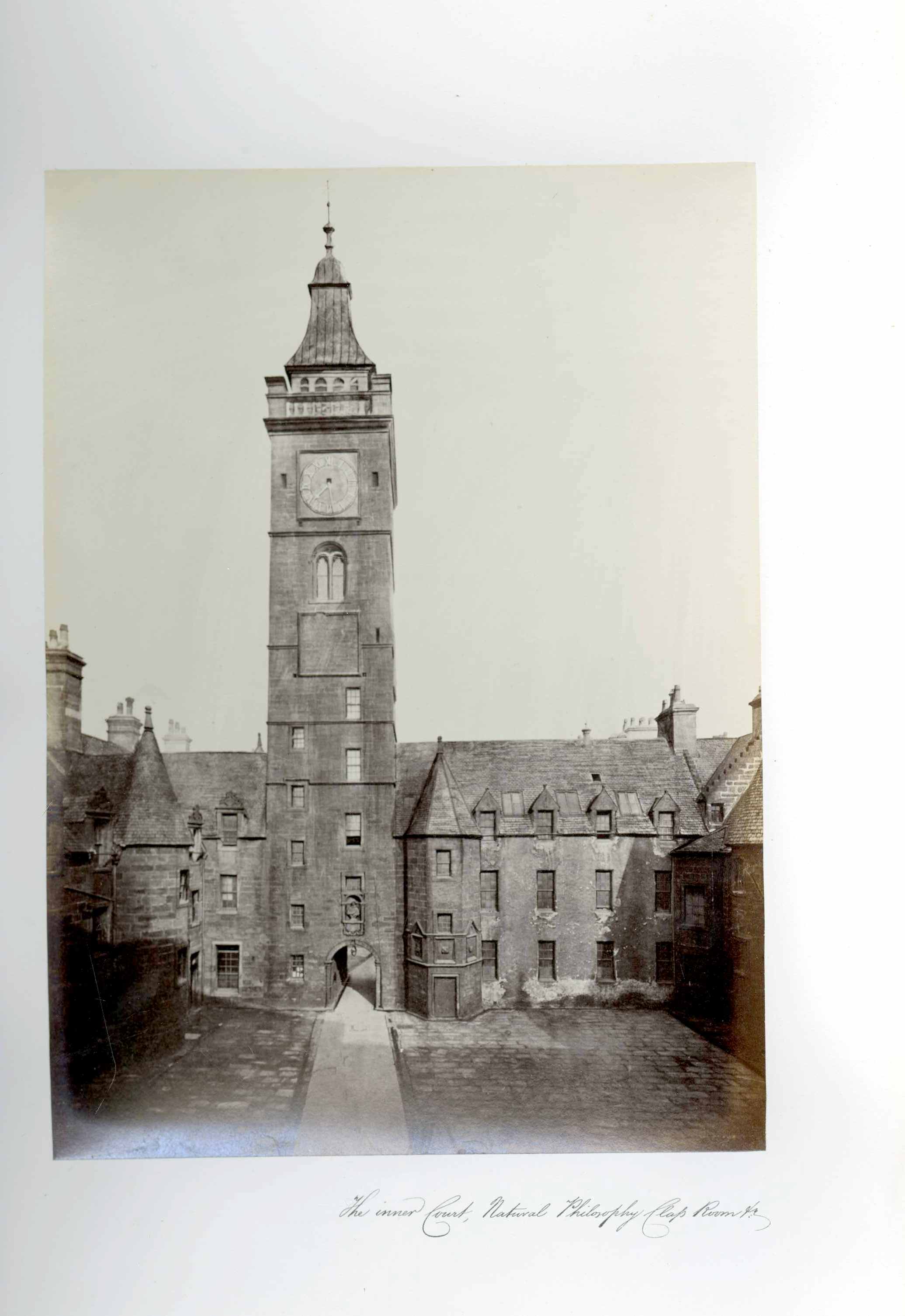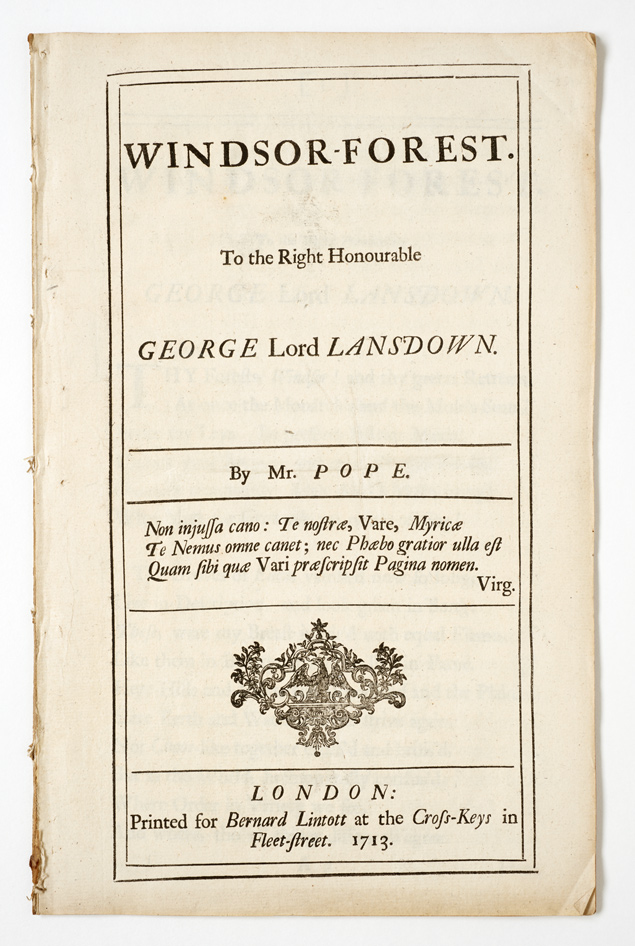

NEO-LATIN VERSE AND SCHOOLBOY MISDEMEANOURS
HADDON, Walter.
Poematum Gualteri Haddoni, legum doctoris, sparsim collectorum libri duo.
Londini, Per Richardum Yardlei, et Petrum Short, propter aßignatos Gulihelmi Seresii. 1592.
8vo, pp. [156], wanting the final two leaves bearing the poem ‘Adonis’; woodcut printer’s device to title; creasing and wear to corners of first two quires, a few ink marks, otherwise good; stab-stitched in limp vellum reused from a manuscript, with faint Latin text to outside and English text to inside (see right); somewhat worn.

Added to your basket:
Poematum Gualteri Haddoni, legum doctoris, sparsim collectorum libri duo.
Very rare second edition (first 1576) of the collected Latin verse of the lawyer, poet, and fellow of King’s College, Cambridge, Walter Haddon (1514/15–1571), this copy bound in a contemporary manuscript relating to schoolboy misconduct.
‘One of the great and eminent lights of the reformation in Cambridge under King Edward’ (Oxford DNB), Haddon served as vice-chancellor of the university. ‘He was an accomplished master of Latin verse, and his poems were much praised during his lifetime’ (ibid.).
The first part of the Poematum comprises religious verse of Biblical inspiration, while the second includes poems on love, music, marriage, Cicero, and Kett’s rebellion, as well as verses relating to the likes of Edward VI, Mary I, Elizabeth I, Roger Ascham, Nicholas Bacon, Thomas Cecil, Martin Bucer, and John Cheke.
The binding on this copy is most interesting, comprising a fragment from a contemporary English manuscript bearing numbered points detailing what appear to be schoolboy misdemeanours for which punishment would be given, the text running from the inside front cover to the inside rear cover. A few examples will convey the interest and charm of the contents: ‘Item he yt misseth morning or divine service unlesse he be sick or have leave’; ‘Item if any of you g[o?] … wth unclean … hose’; ‘Item he yt fights … wth his fellow’; ‘Item he yt drawes … blood’; ‘Item if any shall be [shown?] to be a common haunter of aleh[ouses], drabs, cards, tave[rns] [or] other suspitious place’; ‘Item if any be known to eate appells or any other fruitt’.
ESTC records only three copies, at the Bodleian, Trinity College Dublin, and the Folger. The Folger’s copy is incomplete, wanting most of quire A.

